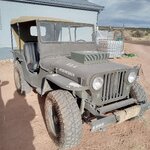I was watching a video on piston rings. Are getting thinner, less friction. For fuel efficiency. How ever will wear out faster. Summation by an other engineering authors is he right?
When is the last time you've seen something driving down the road belching clouds of blue smoke from burnt oil behind it?
That used to happen
all the time. Now, the rare time you see this, it's almost always a historic vehicle (or something that someone has modified, thus losing the OEM reliability).
You can smell historic vehicles from behind nowadays - whether it's the half-burnt oil or the unburnt fuel from too-rich carburetion or weak ignition. That's because they stand out, because modern vehicles smell like nothing. In the so-called good old days, ALL the cars on the road smelled like that! We were breathing all that crap ...
Manufacturing tolerances have gotten better. Surface machining and measurement and quality standards have gotten better. Materials have gotten better. Lubricants have gotten enormously better. Fuel delivery has gotten better (too lean or too rich, due to carburetion being never quite right, both can cause cylinder-wear problems).
YES, some new problems have cropped up. Direct-injection has led to intake-valve-deposit problems. Some emission control systems have had unintended consequences.
But still ... I'd rather breathe the air in big cities now, than the way it was in the 1970s, and that's despite there being more traffic on the roads now than there was then.
We are not going back to 1960s technologies.

